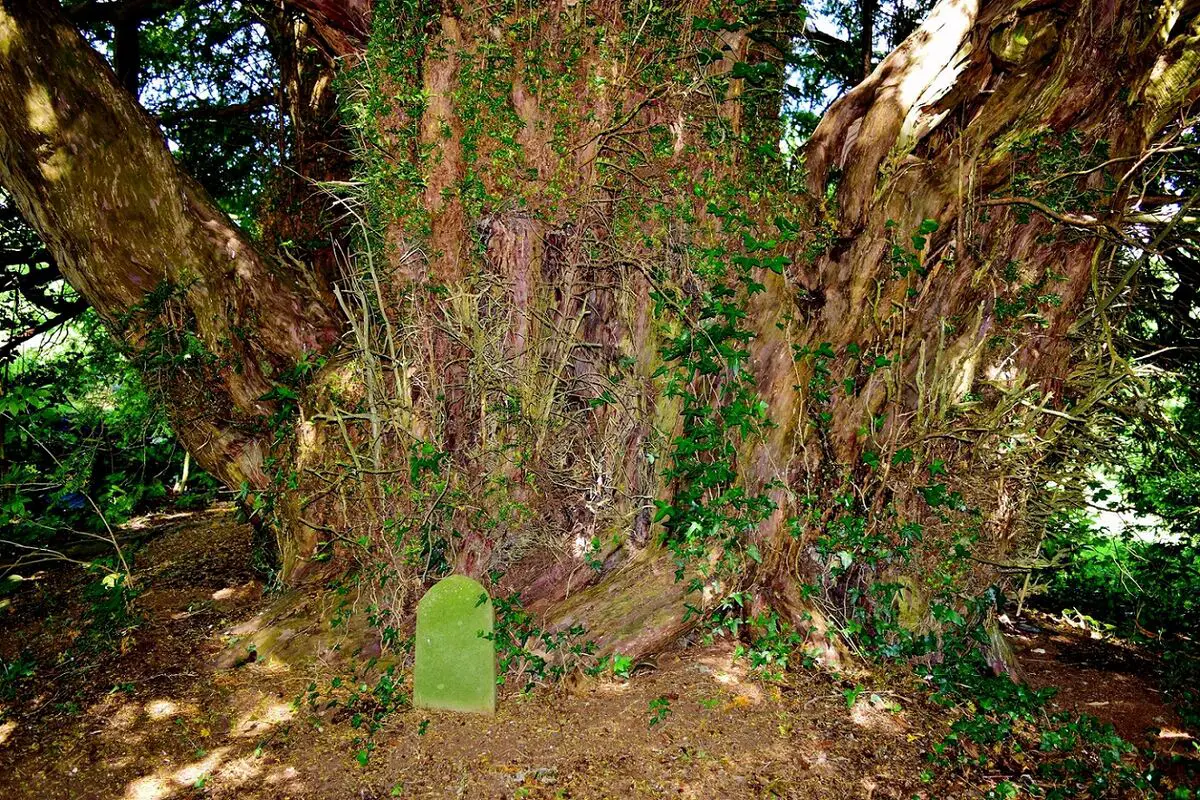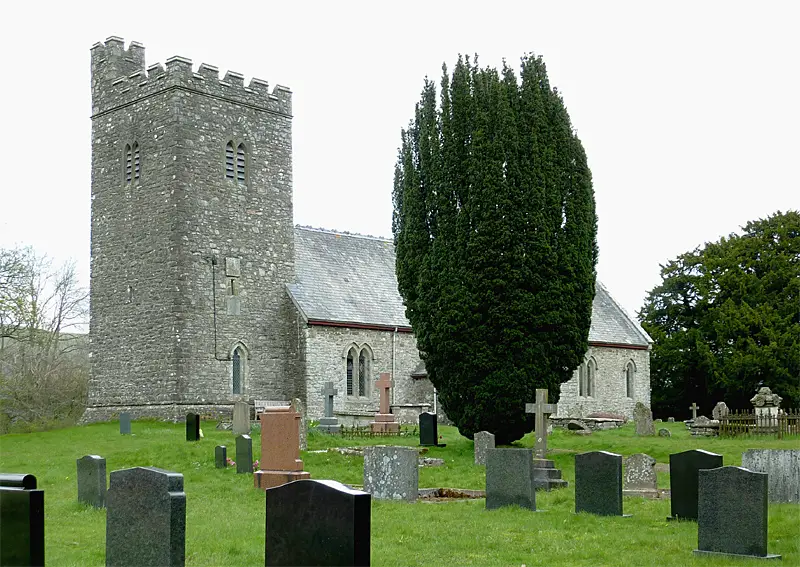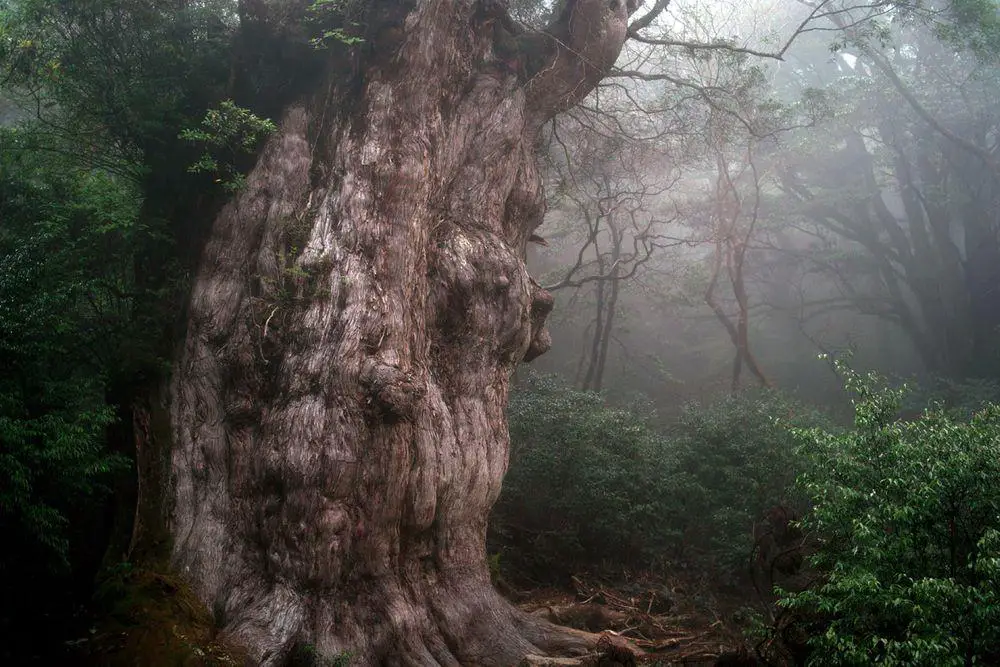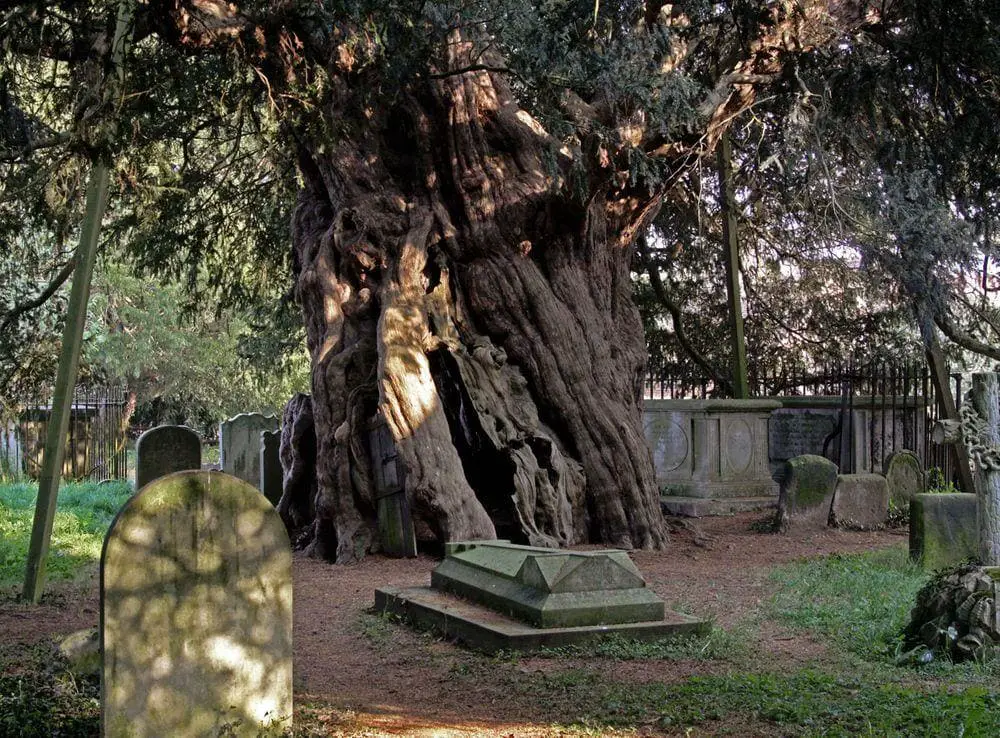World 🢖 Europe 🢖 United Kingdom 🢖 Wales 🢖 Powys
Wonder
Yew at Llanafan Fawr St Afan’s Church

 In short
In short
One of the largest yew trees in the United Kingdom is the yew at Llanafan Fawr St Afan’s Church. Its trunk has divided into several parts but at the ground level it has a single trunk with a circumference of 10.16 m.
 34.0%
34.0%
GPS coordinates
Location, address
Species
Circumference
Map of the site
If you see this after your page is loaded completely, leafletJS files are missing.
 In detail
In detail

Llanawan Fawr today is a scattered community with a medieval church in its centre and several houses around it.
The village is named after a local saint Afan, a bishop who was martyred during the pirate attack in the 6th century.
The name of the village thus can be translated as “llan-afan fawr”: “parish-of-Afan great”, contrary to a neighbouring Llanafan Fechan – “the small parish of Afan”.
St Afan’s Church
It is possible that the first church was built in this location already in the early medieval times. The current church, for the most part, was built in 1765 (tower) and 1887 (other parts of the church) but the base part of the tower and many details, such as the north and east walls remain from the medieval times.
The tomb of St Afan is inside the church and is covered with a 14th-century slab with Lombardic script on it.
Interesting feature of the church is fragments of decorated early medieval stones that are used in its walls.
Around the church spreads its ancient churchyard which is used as a cemetery up to this day. Most likely, in medieval times it had a circular form.
The giant yew tree
In the churchyard grow six larger yew trees but one – to the east from the church – is by far the largest one.
This tree has a wide, tall crown. Close to the ground level its gargantuan trunk divides into several parts – three are enormous, two are smaller and there is also a stump. All three largest branches have hollows.
One can enter the centre of the former trunk from one side: from one side the trunk of the tree looks like one whole, while from another side, the yew looks like several closely located trees.
In 2015 the circumference around the trunk of the tree was 10.16 m, but in 1998 – 9.7 m (1.).
References
- Yew/Yews at Llanafan-fawr Wales, Ancient Yew Group. Accessed on December 16, 2023.
- Church of St Afan, Llanafan Fawr, Clwyd-Powys Archaeological Trust. Accessed on December 16, 2023.
Yew at Llanafan Fawr St Afan’s Church is included in the following article:
 Linked articles
Linked articles

Wonders of Wales
In Wales are located some of the most beautiful caves and waterfalls in the United Kingdom but even more are some of the world’s most impressive castles as well as medieval towns, palaces, and interesting archaeological monuments.

Trees
The category includes some of the most impressive and interesting separate trees in the world. The total number of tree species in the world still is a wild guess – maybe 10,000 and maybe 100,000 but most likely somewhere in between. Every month there are reported new tree species from the whole world, including Western Europe.

Wonders of the United Kingdom
Throughout many centuries the United Kingdom has enjoyed relative political stability and wealth. As a result, humans have created here countless amazing and well-preserved values of art and history.
 Recommended books
Recommended books
The God Tree
The God Tree is a great read and will make people think again and again about Yews’ – David Bellamy, the Naturalist. This is the first book to take up the quest for the Golden Bough since JG Frazer’s classic study in 1915 with the discovery of the bough growing once more, as the rare adornment of a small number of ancient Yews.
The Ancient Yew: A History of Taxus baccata
The gnarled, immutable yew tree is one of the most evocative sights in the British and Irish language, an evergreen impression of immortality, the tree that provides a living botanical link between our own landscapes and those of the distant past. This book tells the extraordinary story of the yew’s role in the landscape through the millennia, and makes a convincing case for the origins of many of the oldest trees, as markers of the holy places founded by Celtic saints in the early medieval ‘Dark Ages’.



